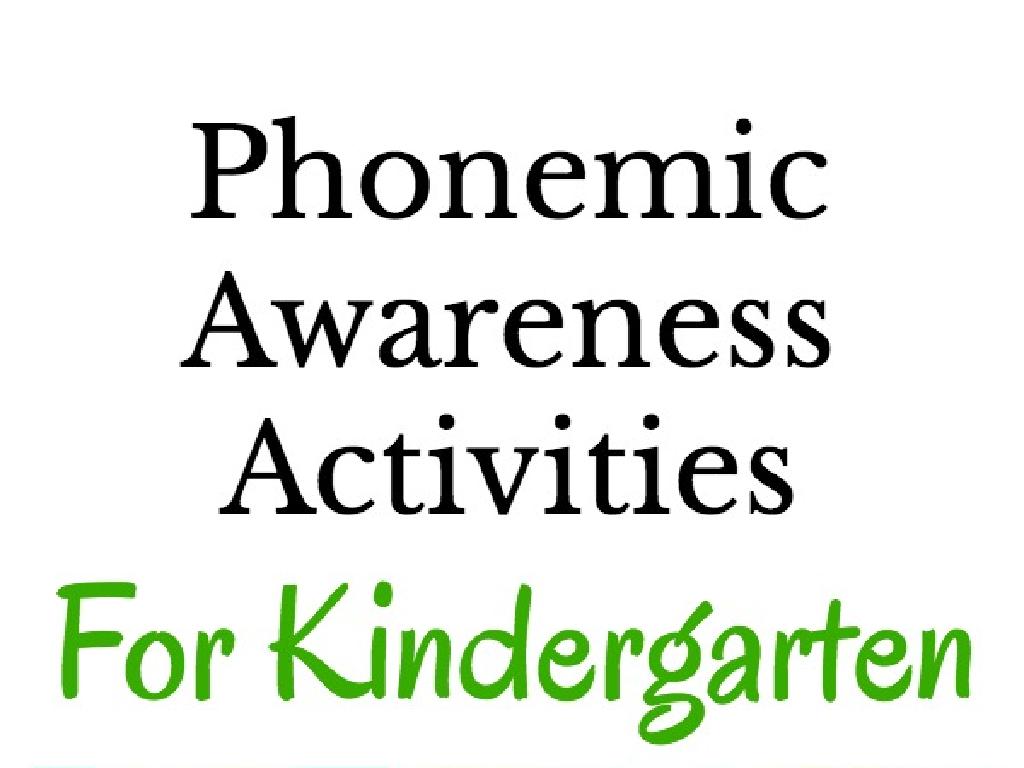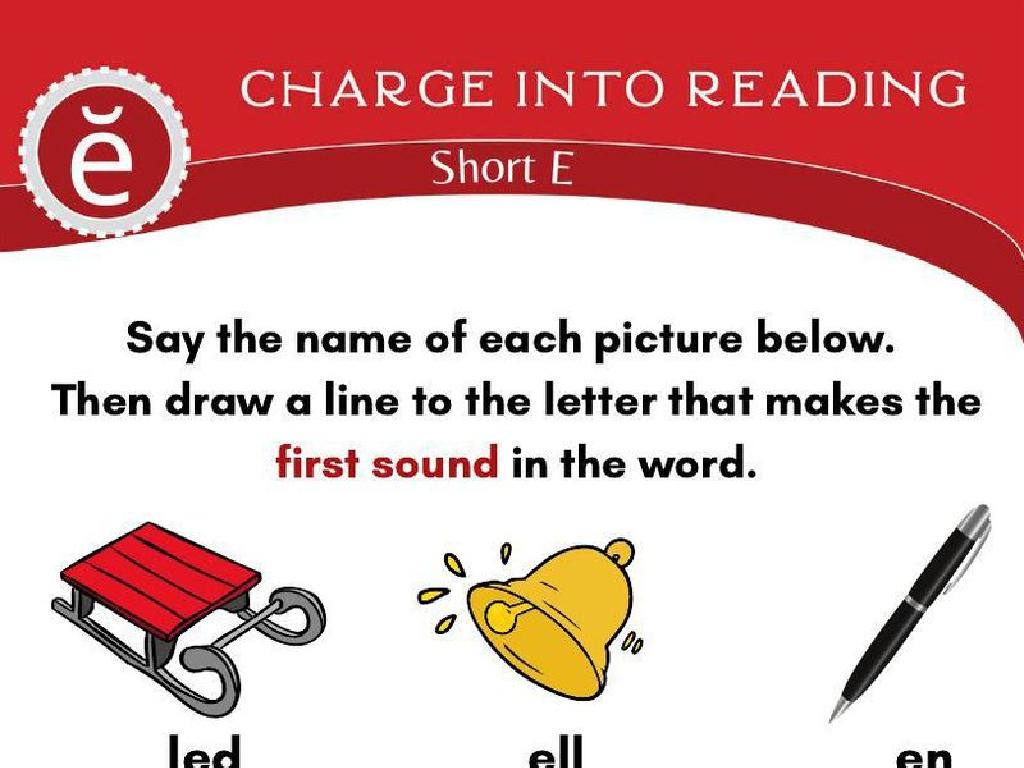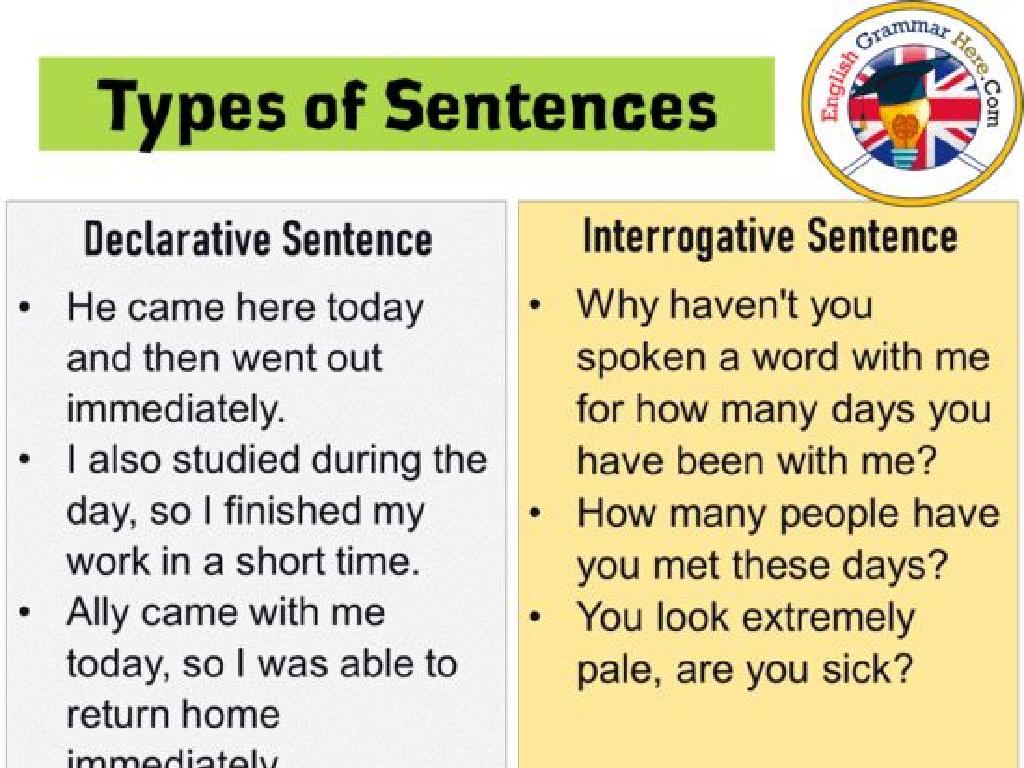Determine The Meanings Of Greek And Latin Roots
Subject: Language arts
Grade: Seventh grade
Topic: Greek And Latin Roots
Please LOG IN to download the presentation. Access is available to registered users only.
View More Content
Introduction to Greek and Latin Roots
– Discovering language building blocks
– Defining Greek and Latin roots
– Roots are the base part of words from ancient Greek and Latin
– Significance in English language
– They form a large part of English and help with understanding new words
– Enhancing vocabulary with roots
– Knowing roots helps decipher meanings of unfamiliar words
|
This slide introduces the concept of Greek and Latin roots, which are the foundational elements of many English words. Understanding these roots can greatly enhance a student’s ability to decipher the meaning of new vocabulary. Emphasize that a large portion of the English language is derived from these ancient languages, and by learning these roots, students can gain insights into the meaning and spelling of words. Encourage students to think of examples of words they already know and how they might be connected to Greek or Latin roots. This foundational knowledge will be built upon in subsequent lessons, where students will learn specific roots and their meanings.
The Power of Roots: Unlocking Word Meanings
– Roots: word building blocks
– Roots are the core part of words, often from Greek or Latin
– Combining roots with affixes
– Prefixes/suffixes attach to roots to form new words
– Common roots and meanings
– ‘bio’ means life, ‘geo’ means earth
– Practice with real examples
– Find roots in words like ‘biology’ (study of life) and ‘geography’ (study of earth)
|
This slide introduces the concept of roots as the fundamental elements from which words are constructed. Emphasize that understanding roots can help students decipher the meanings of complex words. Explain how prefixes and suffixes modify the meaning of roots to create new words. Provide examples of common roots such as ‘bio’ and ‘geo’, and show how they form the basis of words like ‘biology’ and ‘geography’. Encourage students to practice by identifying roots in words they encounter in their reading or in class discussions.
Exploring Greek Roots in English
– Understanding Greek roots
– Greek roots form the foundation of many English words.
– Examples: ‘bio’, ‘geo’, ‘phon’
– ‘bio’ means life, ‘geo’ means earth, ‘phon’ means sound.
– Activity: Find Greek roots
– Identify Greek roots in common words.
– Enhance vocabulary skills
|
This slide introduces students to the concept of Greek roots and their prevalence in the English language. Start by explaining what roots are and how they form the basis of many words. Provide clear examples such as ‘biology’ (study of life), ‘geography’ (study of earth), and ‘telephone’ (device for sound). For the activity, students will search for words in their vocabulary that contain Greek roots. This exercise will help them deduce the meanings of new words by understanding their components. The teacher should prepare a list of words with Greek roots for the activity and guide students on how to break down words into their roots and meanings. This will enhance their vocabulary and decoding skills.
Exploring Latin Roots in English
– Uncover Latin roots in English
– Examples: ‘aqua’, ‘scribe’, ‘port’
– ‘aqua’ relates to water, as in ‘aquarium’
– Activity: Matching roots and meanings
– Match words like ‘aquatic’, ‘describe’, ‘transport’ to meanings
– Enhance vocabulary with Latin roots
|
This slide introduces students to the concept of Latin roots in English vocabulary, which are the building blocks of many words. Start by explaining what roots are and how they form the basis of many English words. Provide examples such as ‘aqua’ for water-related words, ‘scribe’ for writing-related words, and ‘port’ for carrying-related words. The activity involves matching these roots to their meanings, reinforcing their understanding and helping them deduce the meanings of new words. Encourage students to think of other English words that include these roots. This exercise will help students expand their vocabulary and improve their ability to figure out the meanings of unfamiliar words.
Exploring Greek vs. Latin Roots
– Compare Greek and Latin roots
– Both have contributed to English, but they come from different ancient cultures and languages.
– Roots enhance vocabulary
– Recognizing roots helps deduce meanings of unfamiliar words.
– Roots boost comprehension
– Understanding roots aids in grasping the overall message of a text.
– Discuss roots in favorite words
– Share and explore the roots of words you love; what do they tell us about the word’s history?
|
This slide aims to highlight the similarities and differences between Greek and Latin roots, emphasizing their impact on the English language. By understanding these roots, students can significantly expand their vocabulary and improve their reading comprehension. Engage the class in a discussion about the roots of their favorite words, encouraging them to explore the origin and how it contributes to the word’s current meaning. This activity will help students see the practical application of their knowledge and foster a deeper interest in etymology.
Practice with Greek and Latin Roots
– Play root word matching game
– Match root words with their meanings
– Group activity: word creation
– Combine roots to form new words
– Individual challenge: roots in sentences
– Write a sentence using a root
– Share and discuss new words
– Present your words and sentences
|
This slide outlines interactive activities to help students practice their understanding of Greek and Latin roots. Begin with an engaging matching game where students pair root words with their definitions. Follow with a collaborative group activity where students use learned roots to create new words, fostering creativity and application of knowledge. Challenge students to construct sentences using at least one Greek or Latin root to demonstrate comprehension. Conclude with a sharing session where students present their new words and sentences, allowing for peer learning and teacher feedback. These activities aim to reinforce the meanings of roots and their role in word formation.
Class Activity: Root Exploration
– Explore words with Greek/Latin roots
– Determine meanings of roots
– Break down the word to its root form
– Predict words’ definitions
– Use root meanings to guess the full word’s definition
– Present and discuss findings
|
This activity is designed to enhance students’ understanding of Greek and Latin roots and how they contribute to the meaning of English words. Divide the class into small groups and provide each with a list of unfamiliar words containing Greek or Latin roots. Students will analyze the roots to infer the words’ definitions. Afterward, each group will present their words, root meanings, and predicted definitions to the class. Facilitate a discussion on how knowledge of roots can aid in vocabulary acquisition. Possible activities: 1) Matching roots to definitions, 2) Creating flashcards with roots and examples, 3) Writing sentences using words with common roots, 4) Drawing a ‘root tree’ to visualize word families, 5) Playing a ‘root word’ charades game.
Wrapping Up: Greek and Latin Roots
– Recap of root word lesson
– Roots build vocabulary
– Understanding roots helps decipher new and complex words
– Homework: 5 words with roots
– Find words in books or online with Greek or Latin origins
– Write meanings of new words
– Use a dictionary to help with meanings and roots
|
As we conclude today’s lesson, remind students of the key points we’ve covered about Greek and Latin roots. Emphasize how a strong foundation in these roots can greatly assist in expanding their vocabulary and understanding of the English language. For homework, students should find five new words that contain Greek or Latin roots, write down their meanings, and be prepared to discuss how the root influenced the meaning of the word. This exercise will reinforce their learning and help them recognize patterns in word formation. Encourage them to use resources such as dictionaries or educational websites to assist them in their discovery.






